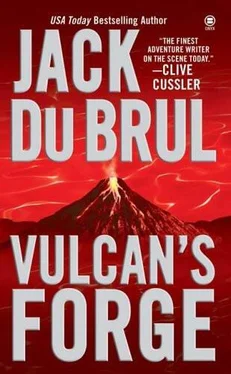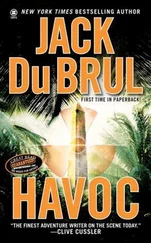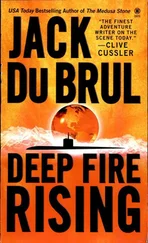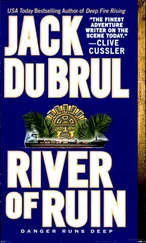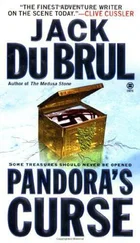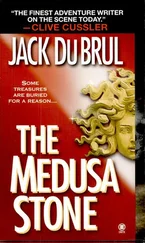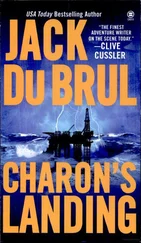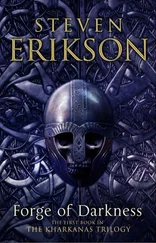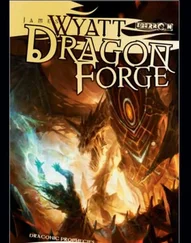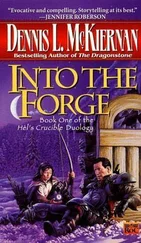Jack Du Brul - Vulcan's forge
Здесь есть возможность читать онлайн «Jack Du Brul - Vulcan's forge» весь текст электронной книги совершенно бесплатно (целиком полную версию без сокращений). В некоторых случаях можно слушать аудио, скачать через торрент в формате fb2 и присутствует краткое содержание. Жанр: Триллер, на английском языке. Описание произведения, (предисловие) а так же отзывы посетителей доступны на портале библиотеки ЛибКат.
- Название:Vulcan's forge
- Автор:
- Жанр:
- Год:неизвестен
- ISBN:нет данных
- Рейтинг книги:5 / 5. Голосов: 1
-
Избранное:Добавить в избранное
- Отзывы:
-
Ваша оценка:
- 100
- 1
- 2
- 3
- 4
- 5
Vulcan's forge: краткое содержание, описание и аннотация
Предлагаем к чтению аннотацию, описание, краткое содержание или предисловие (зависит от того, что написал сам автор книги «Vulcan's forge»). Если вы не нашли необходимую информацию о книге — напишите в комментариях, мы постараемся отыскать её.
Vulcan's forge — читать онлайн бесплатно полную книгу (весь текст) целиком
Ниже представлен текст книги, разбитый по страницам. Система сохранения места последней прочитанной страницы, позволяет с удобством читать онлайн бесплатно книгу «Vulcan's forge», без необходимости каждый раз заново искать на чём Вы остановились. Поставьте закладку, и сможете в любой момент перейти на страницу, на которой закончили чтение.
Интервал:
Закладка:
“Working late again, Father?”
He might have been the oldest member of the scientific team by twenty years, but Pytor Borodin kept a pace that far surpassed that of all his staff, including his second-in-command. He usually spent thirty-six hours in the computer room before taking a grudging six-hour break for sleep. His crumpled appearance alarmed his son.
“Father, have you been taking your medication?”
“No,” the elder scientist fired back irritably. “That Coumadin is nothing more than rat poison and Vasotec, the beta blocker, affects my breathing because of the air-conditioning. Now don’t bother me again about my heart. Have a look at this; we’ve gotten the cameras back on line.”
Valery glanced at the monitor and saw a close approximation of hell on earth. Dangling from a Kevlar cable and encased in carbon fiber with a thick artificial sapphire lens cover, the camera hung directly above the central vent of the fastest growing volcano in the world. Molten rock, forced upward by the tremendous heat engine of the earth’s core, poured through the narrow rent in the crust in a never-ending stream, amid billowing clouds of noxious gas and dissolved minerals. There was no microphone attached to the camera, but Valery could almost hear the protesting moans as the earth vomited up her guts.
“The rate has increased again,” Valery remarked.
“And?”
“The flow is forming more westerly now.”
“Right, it’s caught in the North Equatorial Gyre, just as I’d predicted.”
“But that current only moves maybe three miles per day. Surely that can’t cause a shift in the formation of the cone.”
“It wouldn’t normally, no, but the rate of ejection from the volcano is so great that the two forces create a skew in the lava flow. It’s a simple matter of vectors. I’m glad you’re here, Valery, the computer is about finished with the past day’s data and is ready for a growth projection.”
Because of the massive amount of raw data gathered by the sensors and the inherently chaotic movement of anything within nature’s realm, the August Rose needed huge computers in order to create a reasonable prediction of the volcano’s future growth. Even with the gigabytes of power, the computers needed a full twenty-four hours to remap, down to the millimeter, the thrusting cone below the ship and then to predict where the cone would broach the surface of the Pacific Ocean.
The countdown clock on one computer screen indicated that the holographic projection would be complete in one minute and twenty seconds. Valery and his father waited in silence, both preferring to stare at the camera images than fake inane conversation. Pytor Borodin didn’t seem to notice the tension between them, but Valery was well aware.
Finally the counter ran down to zero, and Pytor Borodin activated the holographic imager. The model projected against the plotting table began as just a hazy conical outline, but quickly sharpened. Crags, radiating dikes, and smaller vents were easily distinguished. The projection looked as solid as a plaster cast but was composed entirely of laser beams.
“Activating the extrapolation logarithms.”
The computer had already done the tens of billions of calculations necessary to predict the growth of the volcano, so the image began to change immediately. A shimmering blue plane representing the ocean’s surface appeared and the volcano quickly rose through it, tiny simulated waves pounding against the bleak basalt shores.
Borodin pressed several more buttons on his console and longitude and latitude lines were added to the projection, accurate to the second of a degree.
With a note of satisfaction, Pytor Borodin remarked, “This is the third straight test where the summit has broached more than a thousand meters outside of Hawaii’s two-hundred-mile exclusionary limit. I think it is now time to inform Kerikov.” He turned to a female assistant. “Tell the captain that I wish us to remain on the site for an additional twenty-four hours.”
She nearly bowed as she left the lab. Borodin strode back to his console and called to the room at large, “Reset the sensors and the computers. I want to run another simulation immediately.”
Just as Valery turned to go, his father grabbed him lightly by the arm. “You have yet to see the latest from the gas spectrometry lab.”
The two left the lab together, Borodin’s hand still on his son’s arm, as if he expected him to bolt at any moment.
The spectrometry lab was crammed with gleaming stainless steel equipment and several computer monitors slaved to the mainframe. The gas spectrometer itself was as large as an automobile, but infinitely more complex. It used the spectrum of light given off by vaporized material to decode its chemical composition. The system was also paired with a seismic wave echo sounder as a backup.
“Vassily, show our second-in-command what you showed me earlier this evening.” Borodin never called Valery his son.
The sheets of paper the scientist thrust into Valery’s hands were covered in bands of rainbow hues broken up by black lines of varying thicknesses. The lines corresponded to the wavelengths of light absorbed by the vaporized materials.
As easily as a geographer deciphering the myriad lines on a topographical map, Valery leafed through pages, noting no deviations from the normal composition of asthenospheric magma, until he came to the last set of spectrographic images.
He recognized the lines denoting basalt, silica, and ferro-magnesium, but there was also a series of conspicuous lines indicating the presence of vanadium, and next to that, a jumble of alternating thick and thin lines that he had never seen before.
“The earliest writings on alchemy date from the mid-fifth century and have been found in Arab and Chinese codices as well as European,” Pytor Borodin said softly, looking over his son’s shoulder at the printout. “For the following twelve centuries, alchemists represented the best scientific minds of their time and gave rise to modern chemistry and pharmacology, yet they all failed at their self-appointed task. Not one was ever able to transmute lead into gold.
“Now, in the age of supercomputers, satellites, and atom smashers, we have returned to the very roots of science. We have done what thousands of people have wasted generations trying to accomplish. At the time of the great alchemists, gold represented the true power of the world. Today, power in the literal sense is what drives the planet. We have done something that mankind had given up as hopeless — we have turned base earth into the most precious substance in the universe. Not some gaudy metal with only limited use, but a power source that can recreate itself even as we use it up. With that kind of strength, Valery, no one will ever have the strength to challenge us.”
Uncomfortable with his father’s words, Valery silently let the papers slide to the desk and walked out of the lab. He was reminded of a quote from Hindu mythology, in which Shiva announced, “I am become death, the destroyer of worlds.” They were the same words used by Robert Oppenheimer after his creation vaporized a portion of the New Mexico desert.
Arlington, Virginia
Mercer woke just before six in the morning, the jet lag he’d expected burned away by the previous day’s adrenaline overdose. He rose stiffly, gently fingering the livid bruises on both shoulders. He shaved and showered before descending to the rec room. With a cup of thick black coffee in hand, he tried unsuccessfully to concentrate on the morning papers. Throughout the night, his sleep had been interrupted with new questions about Tish’s story, but there were no answers. He resigned himself to waiting for the information from David Saulman in Miami.
Читать дальшеИнтервал:
Закладка:
Похожие книги на «Vulcan's forge»
Представляем Вашему вниманию похожие книги на «Vulcan's forge» списком для выбора. Мы отобрали схожую по названию и смыслу литературу в надежде предоставить читателям больше вариантов отыскать новые, интересные, ещё непрочитанные произведения.
Обсуждение, отзывы о книге «Vulcan's forge» и просто собственные мнения читателей. Оставьте ваши комментарии, напишите, что Вы думаете о произведении, его смысле или главных героях. Укажите что конкретно понравилось, а что нет, и почему Вы так считаете.
